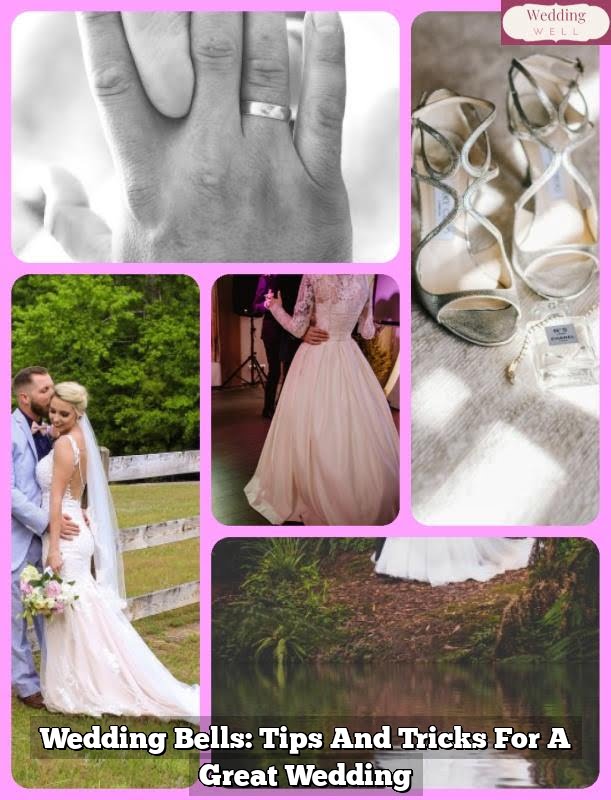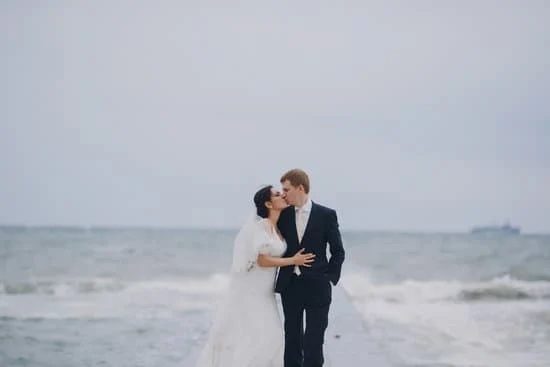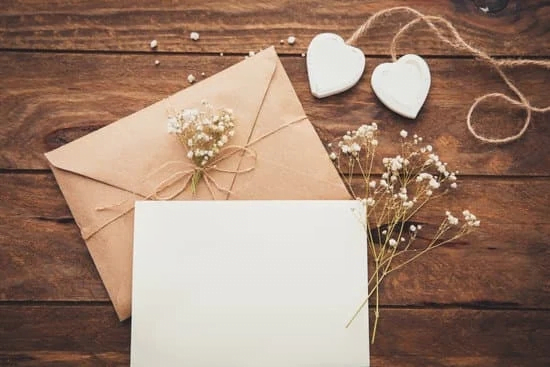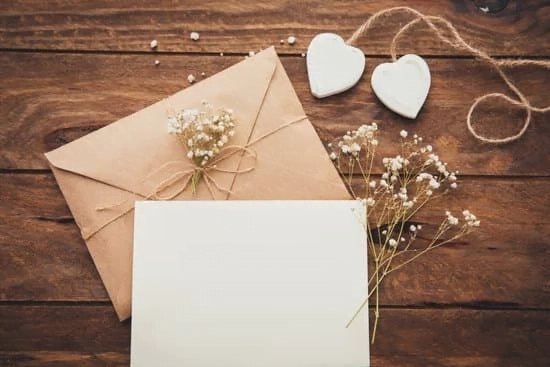What is a wedding vow? Wedding vows are solemn promises made by couples to each other during their wedding ceremony. These vows hold deep emotional and symbolic significance, as they are the foundation of the commitment between partners as they embark on their journey together as a married couple.
The exchange of wedding vows has been a timeless tradition in various cultures and religions, representing the heartfelt promises and intentions of the couple towards each other. Throughout history, the concept of wedding vows has evolved, reflecting changes in societal norms and values.
In this article, we will delve into the significance of wedding vows, exploring their historical origins, traditional and personalized variations, cultural differences, and even the practice of renewing wedding vows. By examining all these aspects, we can gain a comprehensive understanding of the deep-rooted meaning behind this essential element in marriage ceremonies.
The History of Wedding Vows
Wedding vows have been a central part of marriage ceremonies for centuries, and they hold significant meaning for couples as they make promises to one another. The history of wedding vows can be traced back to the ancient civilizations of Rome and Greece, where marriage ceremonies included spoken promises between the couple. These promises were often centered around the concept of fidelity, love, and commitment, reflecting the foundational elements of a successful marriage.
Evolution of Wedding Vows
As time progressed, the tradition of wedding vows evolved, taking on religious connotations in many cultures. In Christian marriage ceremonies, vows became standardized and included promises to love, honor, and cherish one’s spouse until death. The exchange of wedding rings also became intertwined with the verbal vows, symbolizing the enduring nature of the promises being made.
Secularization of Wedding Vows
In more recent history, there has been a trend towards secularization and personalization of wedding vows. Couples are increasingly opting to write their own vows, infusing their individual personalities and experiences into the promises they make to each other. This shift reflects a desire for authenticity and meaningful expression during this pivotal moment in their lives.
Understanding the history and evolution of wedding vows provides insight into the significance and tradition behind this aspect of marriage ceremonies. Whether rooted in ancient customs or personalized for modern relevance, wedding vows continue to be a powerful declaration of love and commitment between partners.
Traditional Wedding Vows
The Content of Traditional Wedding Vows
Traditional wedding vows typically revolve around promises such as love, fidelity, and commitment. They often include phrases like “to have and to hold,” “for better or for worse,” and “till death do us part.” These timeless words symbolize the enduring nature of marriage and the devotion that couples pledge to one another.
The Role of Traditional Wedding Vows
While modern trends encourage personalization and customization, many couples still choose to exchange traditional vows during their wedding ceremony. These classic promises provide a sense of continuity with generations past and uphold cultural norms. They also carry a sense of solemnity and formality that adds gravitas to the occasion.
Additionally, for some individuals, reciting traditional vows may serve as a connection to their heritage or faith. Despite changing attitudes towards marriage, traditional vows continue to hold special meaning for many couples tying the knot today.
As we delve into the significance of wedding vows in a later section, it is clear that traditional wedding vows play a crucial role in setting the tone for marital commitment and laying the foundation for a lifetime of love and partnership.
Personalized Wedding Vows
In recent years, there has been a noticeable trend of couples opting to write their own wedding vows rather than reciting traditional ones. This trend has gained popularity as it allows couples to express their unique love story and personal promises to each other.
So, what is a wedding vow? A wedding vow is a promise or pledge made by one partner to the other during a wedding ceremony, and personalized vows have become a way for couples to make this promise more meaningful and personal.
The impact of personalized wedding vows on the ceremony is significant. By writing their own vows, couples are able to infuse their personalities, values, and emotions into the ceremony, making it more intimate and memorable.
These personalized vows often include anecdotes, inside jokes, and specific promises that reflect the couple’s individual journey together. The exchange of personalized vows can create a deeply emotional and authentic atmosphere during the ceremony, leaving a lasting impression on both the couple and their guests.
Furthermore, the trend of personalized wedding vows has also contributed to making wedding ceremonies more inclusive and representative of diverse love stories. Couples from different cultural backgrounds or same-sex couples often find writing their own vows as an opportunity to celebrate their unique relationship in a way that might not be captured by traditional vows.
Personalized wedding vows have thus become a way for couples to redefine what marriage means to them and share it with their loved ones in a meaningful way.
| Wedding Vow Trend | Impact on Ceremony |
|---|---|
| Personalized vows gaining popularity | Creates intimate and memorable atmosphere |
| Couples expressing unique love story | Makes ceremony more inclusive and representative |
The Structure of Wedding Vows
Wedding vows are a key component of any marriage ceremony, as they are the promises made by the couple to each other. These commitments hold significant emotional and symbolic value, signifying the love, dedication, and commitment a couple has for one another. It is important to understand the structure and meaning of wedding vows to truly appreciate their significance in a marriage.
The typical components of traditional wedding vows include:
- Declaration of intent: The couple affirms their decision to marry each other.
- Expression of love: They express their deep feelings for each other.
- Promises for the future: They make specific promises about what they will do for each other in the future.
Each component carries its own specific meaning. The declaration of intent signifies the couple’s conscious decision to enter into marriage, while the expression of love acknowledges the emotional bond between them. The promises for the future serve as a commitment and outline of what each partner can expect from one another in their life together.
In recent years, many couples have chosen to personalize their wedding vows, adding their own unique words and promises. This trend allows couples to tailor their vows to reflect their relationship and individual personalities. While this may differ from traditional wedding vow structure, it adds an authentic touch to the ceremony and emphasizes a deeper connection between the couple.
Cultural Variations in Wedding Vows
Wedding vows are not only a significant part of the Western wedding tradition but also play a crucial role in various cultures and religions around the world. The way these vows are exchanged, the promises made, and the cultural significance attached to them can vary widely from one region to another. Here are some examples of how different cultures and religions approach the concept of wedding vows:
- Hindu weddings: In Hindu culture, the exchange of vows takes place during the Saptapadi, or the seven steps taken together by the bride and groom around a sacred fire. Each step represents a vow they make to each other, such as providing for their family, cherishing each other, and supporting each other in times of need.
- Islamic weddings: In Islamic culture, the wedding vows may be recited during the Nikah, or marriage contract ceremony. The groom typically agrees to provide for and protect his bride, while the bride expresses her willingness to be faithful and supportive.
- Native American weddings: In some Native American traditions, wedding vows involve making promises not just to each other but also to nature and the community. This can include commitments to respect Mother Earth, support tribal traditions, and honor their ancestors.
These examples illustrate how diverse cultural practices influence the concept of wedding vows. While some cultures emphasize specific promises related to roles within marriage or community involvement, others focus on spiritual or environmental aspects. Understanding these cultural variations can enrich our appreciation for the universal theme of commitment and love that underpins wedding ceremonies around the world.
Renewing Wedding Vows
There are various reasons why couples decide to renew their wedding vows. For some, it may be an opportunity to commemorate a milestone anniversary such as 10th, 25th, or 50th year of marriage.
For others, it could be a way to recommit to each other after facing challenges or difficult times in their relationship. Some couples may also choose to renew their vows as part of a larger celebration with family and friends who were not present at their original wedding ceremony.
The process of renewing wedding vows can vary greatly depending on the couple’s preferences. Some may opt for an intimate ceremony with just the two of them, while others may plan a large-scale event complete with all the trappings of a traditional wedding.
Similarly, the vows exchanged during a renewal ceremony can be personalized or they can stick closely to traditional wording, depending upon the couple’s desires. Overall, the act of renewing wedding vows serves as a meaningful reminder of the enduring love and dedication within a marriage.
The Significance of Wedding Vows
In conclusion, wedding vows play a crucial role in the emotional and symbolic foundation of a marriage. Whether they are traditional, personalized, or renewed, wedding vows serve as a heartfelt expression of love, commitment, and promises between couples.
The history of wedding vows has evolved over time, reflecting the changing values and beliefs of different cultures and religions. From the classic promises to the modern trend of personalized vows, the significance of wedding vows remains constant in uniting couples in marriage.
The act of exchanging wedding vows symbolizes the beginning of a lifelong journey together as partners. It signifies the mutual respect, trust, and dedication that couples have for each other.
The structure of wedding vows may vary across different cultures and religions, but their fundamental purpose remains universal: to solemnize the bond between two individuals in love. Whether spoken in front of family and friends or renewed after years of marriage, wedding vows hold immense sentimental value for couples as they celebrate their commitment to each other.
Ultimately, what is a wedding vow? It is more than just words spoken during a ceremony; it represents the promises made by two individuals to cherish and support each other through life’s joys and challenges.
Wedding vows encapsulate the essence of love and partnership, making them an essential aspect of a meaningful and lasting marriage. As couples continue to exchange these heartfelt promises in various forms across different cultures and traditions, the significance of wedding vows will remain timeless in building strong and enduring relationships.
Frequently Asked Questions
What Is in a Wedding Vow?
A wedding vow typically includes promises and commitments made by the couple to each other. It often involves expressing love, faithfulness, support, and a lifelong commitment to their partner.
What Is the True Meaning of Wedding Vows?
The true meaning of wedding vows is the heartfelt expression of love, trust, and commitment between the couple. It symbolizes the promise to stand by each other through thick and thin, to cherish and support one another for the rest of their lives.
What Are the 3 Promises of Marriage?
The three main promises of marriage are typically love, support, and fidelity. Love encompasses a deep affection and care for your partner, while support involves being there for them in good times and bad. Fidelity represents the commitment to remaining faithful to one another.

Welcome to my blog about home and family. This blog is a place where I will share my thoughts, ideas, and experiences related to these important topics. I am a stay-at-home mom with two young children. I hope you enjoy reading it! and may find some helpful tips and ideas that will make your home and family life even better!





